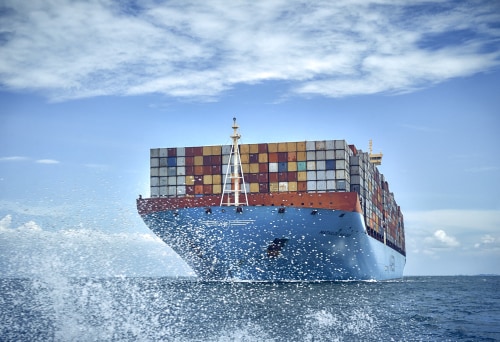
Oceanic transport is just a part of doing business for a global company like Volvo Cars. Annually, tens of thousands of containers of production materials headed for Volvo factories make their way across the seas on container ships, something that can put out a large amount of CO2 emissions. Now, these journeys will be made with renewable fuel instead of traditional fossil fuels, cutting the company’s emissions by a drastic amount.
Volvo is the first global automaker to announce a switch of this kind. The payoff of the change is immediate, reducing CO2 emissions by at least 84%. This reduction is equivalent to the emissions that would be caused by a full truck driving around the equator 1,200 times.
As opposed to fossil fuels, these container ships will now be powered by Fatty Acid Methyl Esters (FAME). This fuel is based on renewable and sustainable sources, mainly waste cooking oil. No feedstock related to palm oil or palm oil production is used in its creation. This fuel source is certified and is not produced in competition with food crops, making it sustainable in accordance with the EU Renewable Energy Directive.
“Renewable fuel is not the end game for removing CO2 from the world’s ocean freight needs,” said Javier Varela, Volvo’s Chief Operating Officer and Deputy CEO. “Yet this initiative shows that we can act now and implement solutions that achieve significant results during the wait for long-term technological alternatives.”
“We don’t view this initiative as a competitive advantage,” Varela added. “On the contrary, we want to spark other car makers into action as well, to increase demand for carbon efficient ocean transports and to establish renewable fuels as a mid-term solution that works. We all have a responsibility to act.”
Volvo has been working on this initiative together with logistics partners Maersk, Kuehne+Nagel and DB Schenker. Renewable fuel must be used on all container transports for Volvo Cars whenever available. When not available for a specific shipment, Volvo’s allocation of renewable fuel is instead used by the logistics partner for another customer’s route elsewhere, meaning that the overall cut in fossil fuel use is kept on par with actual use in container vessels. This methodology is called mass-balancing and will be third-party audited on a regular basis.
“We’re continually exploring sustainability opportunities across all aspects of our supply chain, and across our overall business,” Javier Varela said. “Our list of initiatives keeps growing as we work towards our ambition of becoming a climate neutral company by 2040.”
If you’re interested in keeping up with all of the latest Volvo news, including sustainability updates like this one, make sure you continue to read our blog here at Scott Vovlo!
 AdChoices
AdChoices